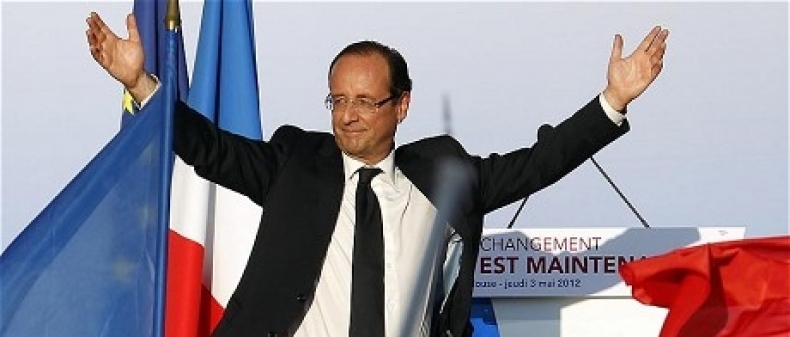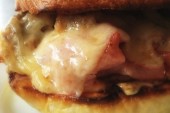
Francois Hollande
My perception of France was very much shaped by my first visit to the country seven years ago. I was a wide-eyed young lad studying abroad in England in my third year of university, and I decided to take a weekend trip to visit a friend of mine who was living in Paris at the time.
I remember excitedly arriving at the train station in London with visions of fine wine, Nutella crêpes, and beautiful French girls who would undoubtedly find my Canadian accent exotic and adorable, but there was a problem. My train had been delayed, because the French railroad workers on the other side of the border were on strike.
When I inquired as to what grave injustice had given cause to their protest, the answer I received was surprising. They were on strike because they were not happy with their 35-hour work week; it was not right, they contended, to have to work for more than 30 hours a week.
Given this introduction to French society, it was therefore not exactly a shock when I learned that Francois Hollande, the Socialist candidate, was elected president of France on Sunday. Anyone who has ever been to France has likely seen some socialist undertones in the country similar to what I experienced on my first visit. What was a little surprising, however, was the political context that allowed for Hollande’s victory.
On the surface, Hollande seems like a peculiar choice to be the country’s first Socialist president since Francois Mitterand. Hollande has had a lengthy political career, but it has mostly been in backroom capacities. He has never been considered a particularly charismatic or dynamic figure; over the years his nicknames have included “Mr. Normal”, “Marshmallow Man” and “Monsieur Flanby.”
Hollande’s former partner and the mother of his children, Segolene Royal (who actually defeated him for the Socialist Party’s presidential nomination for the 2007 election) has described him as being “incapable of action” and as having “achieved nothing in 30 years of public life” (how sweet!). A year ago, Hollande hovered at around three percent in the polls.
So what happened? The incumbent President Nicolas Sarkozy had been under fire for a while as a result of France’s deteriorating economic situation and rising unemployment rate. The austerity measures that the conservative Sarkozy introduced to rein in spending diminished his standing with the French populace, as did an ostentatious and abrasive personal style that many found off-putting.
For a while, it seemed like the man poised to benefit from Sarkozy’s problems would be the former head of the IMF, Dominique Strauss-Kahn, who was considered the leading candidate for the Socialist nomination. A year ago, however, DSK got caught with his baguette out where it shouldn’t have been, when a maid in a New York hotel accused him of sexual assault, which torpedoed his presidential aspirations (meanwhile, the incorrigible DSK has also recently been saddled with allegations that he was involved in a rape during a sex party in Washington in 2010).
DSK’s fall from grace opened the door for Hollande, but still the Marshmallow Man needed some help. He received it from a most unlikely source: the far-right National Front party, known for intense xenophobia and denial of the holocaust. Its leader, Marine Le Pen, daughter of the demagogue Jean-Marie Le Pen, discouraged her supporters from backing Sarkozy in the final round of voting, in what Maureen Dowd of The New York Times speculated was part of a plan to eventually consolidate the French conservative movement under the National Front’s extremist agenda.
With all the political dysfunction around him, Hollande was able to squeak out a victory in the election against Sarkozy with some 52% of the vote, and he now becomes the country’s leader. He has promised to reverse many of the austerity measures and implement a host of initiatives near and dear to the Socialist cause, including reducing the age of retirement from 62 to 60 (at a time when most countries are moving in the other direction) and imposing a 75% tax rate on those earning over a million euros a year (which has already given rise to reports of a looming mass exodus of the country’s wealthy).
Given that Hollande has also said more generally that, “my opponent is the world of finance”, many observers are quite concerned about what his election means for the already fragile European economic situation, and international markets more broadly. Personally, I keep coming back to my first trip to France, and I can’t help but think that somewhere, those French railroad workers are smiling.
______
Matthew Frisch writes Foreign Desk for Toronto Standard. Follow him @mfrisch.
For more, follow us on Twitter at @TorontoStandard and subscribe to our newsletter.














